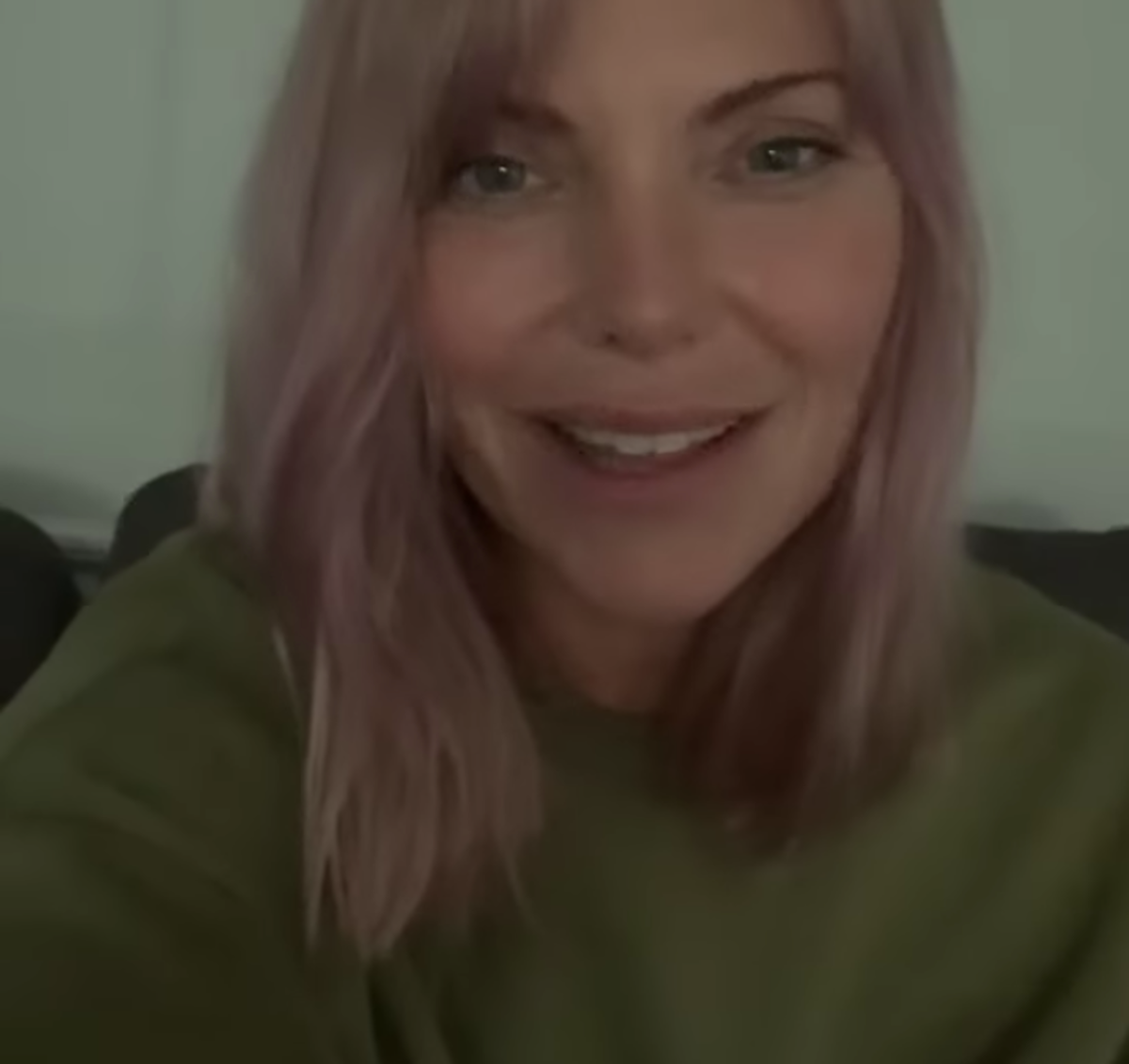Preparing For Chemotherapy
- Narnia actress Samantha Womack, a 49-year-old mom of two, updated her fans this week saying she’s set to begin round one of chemotherapy after undergoing a lumpectomy and lymph node surgery.
- Chemotherapy for breast cancer uses strong drugs to kill cancer all over the body. It is possible that patients get this treatment to shrink a tumor before surgery, afterward to get rid of any remaining cancer cells or on its own if the patient cannot have surgery.
- When Womack announced her cancer diagnosis back in August, she did so in a tribute Twitter post to Olivia Newton-John, who passed away at 73.
Now, the 49-year-old mom of two, updated her fans this week saying she’s set to begin round one of chemotherapy after undergoing a lumpectomy and lymph node surgery.
Read More
“This was the most magical of evenings. Olivia and Chloe had come to see Grease in London and we had dinner together afterwards,” Womack wrote in the tweet. “I was so excited and in awe, she was my childhood. I now start my own battle with this disease and am left feeling deeply moved.”
Alongside her heartfelt words was a photo of her smiling with Newton-John and her daughter, Chloe Rose Lattanzi.
Newton-John passed away at age 73 on August 8, 2022, after years of being an inspiration to people living with breast cancer. Her mission was to "find kinder ways to treat cancer," and she was a true champion for people battling cancer.
This was the most magical of evenings. Olivia and Chloe had come to see Grease in London and we had dinner together afterwards. I was so excited and in awe, she was my childhood. I now start my own battle with this disease and am left feeling deeply moved. #OliviaNewtonJohn pic.twitter.com/7vkgT5oCMf
— Sam Womack (@Sam_Womack) August 9, 2022
The Aussie singer, who lived more than five years with advanced breast cancer, was first diagnosed with the disease in 1992.
To treat her cancer, she had chemotherapy and a partial mastectomy (surgical removal of cancerous breast tissue). In 2017, Newton-John's cancer returned and it had spread to other parts of her body, so she had radiation therapy to treat it.
Staying Positive Through Cancer
Focusing on hope and maintaining a positive attitude through a cancer battle as Womack is doing can help. Anecdotal evidence from SurvivorNet experts points to how a positive mindset and gratitude can positively impact a cancer prognosis.
One oncologist at Cedars-Sinai tells SurvivorNet in an earlier interview, "My patients who thrive, even with stage 4 cancer, from the time that they, about a month after they're diagnosed, I kind of am pretty good at seeing who is going to be OK. Now doesn't that mean I'm good at saying that the cancer won't grow," he says.
"But I'm pretty good at telling what kind of patient are going to still have this attitude and probably going to live the longest, even with bad, bad disease. And those are patients who, they have gratitude in life."
Chemotherapy for Breast Cancer
Chemotherapy for breast cancer uses strong drugs to kill cancer all over the body. It is possible that patients get this treatment to shrink a tumor before surgery, afterward to get rid of any remaining cancer cells or on its own if the patient cannot have surgery.
In Womack’s case, she is having chemotherapy after surgery. Whether or not to have chemotherapy can also be the patient's choice, depending on their age, the type of cancer they have and its stage.
If the patient's breast cancer is triple-negative, which means the three main types of receptors estrogen, progesterone and the HER2 protein do not fuel the cancer, chemotherapy is typically the treatment. This is because the cancer does not respond to certain targeted therapies.
Women who are diagnosed with HER2-positive breast cancer have high levels of the HER2 protein on the outside of their cancer cells. For patients with early-stage disease, meaning they have relatively small tumors and no lymph involvement, a number of HER2-directed therapies have dramatically changed the landscape. These include chemotherapy drug trastuzumab (brand name: Herceptin), as well as pertuzumab (brand name: Perjeta), which is a monoclonal antibody used in combination with chemotherapy.
Symptoms of Breast Cancer
Being aware of how your breasts normally look and feel is an important factor when it comes to breast cancer detection. Doing regular self-exams is one way to familiarize yourself with how your breasts normally feel, so that you will be able to identify anything out of the ordinary like a lump or hard mass. Below are some other symptoms to look out for.
- New lump in the breast or underarm (armpit)
- Any change in the size or the shape of the breast
- Swelling on all or part of the breast
- Skin dimpling or peeling
- Breast or nipple pain
- Nipple turning inward
- Redness or scaliness of breast or nipple skin
- Nipple discharge (not associated with breast feeding)
Of course, these symptoms can be due to things other than cancer. For example, a lot of women experience breast tenderness during certain times in their menstrual cycles. If you're worried talk to your doctor about it. They may want to perform an exam, or even schedule a mammogram just to be safe.
An Introduction to Breast Cancer Symptoms & Diagnosis
Contributing: SurvivorNet Staff
Learn more about SurvivorNet's rigorous medical review process.


